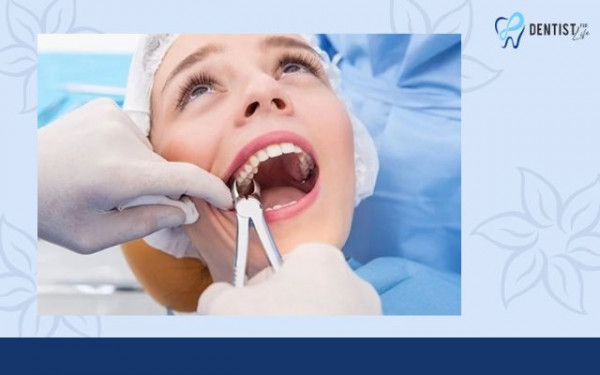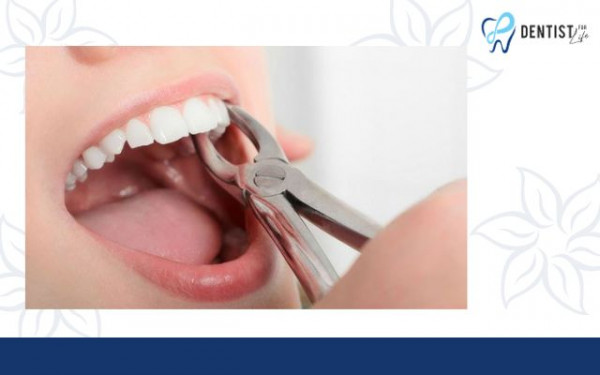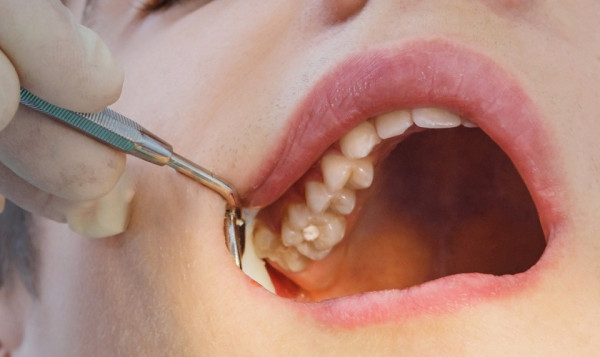Tooth extraction upper molar is a common dental procedure that may be necessary due to severe decay, infection, or overcrowding. The process involves the careful removal of the affected tooth, followed by proper post-operative care to ensure a smooth recovery. Patients may experience some discomfort and swelling after the procedure, but these symptoms can be managed with pain medication and ice packs.
When should the upper deep tooth be extracted?
Tooth extraction is a basic technique in dentistry. Deep tooth decay in the upper jaw and the need for extraction will greatly affect the function of chewing and grinding food. Therefore, the extraction of the upper deep tooth needs to be carefully considered and should not be handled without a doctor’s recommendation. Here are the cases that require extraction of the upper deep tooth:
Loose teeth due to trauma that cannot return to their original position.
Severe decay in the upper teeth reaching the pulp, causes pulp inflammation, root compression, bone resorption, pulp necrosis, etc.
Impacted wisdom teeth, and misaligned teeth causing pain and discomfort.
Should the upper deep tooth be extracted or not?

You may wonder whether the upper deep tooth should be extracted or not. Because the upper teeth are close to the nervous system, any improper tooth extraction can have serious consequences.
Deep tooth decay breaks the tooth structure, and if not treated immediately, it can lead to toothache, tooth loss, infection, and in severe cases, even death.
Therefore, when the upper teeth are deeply decayed, we should seek treatment as soon as possible to avoid serious complications. However, regardless of the location of the deep tooth decay, you should not extract it on your own and should consult a dentist first.
See more: Pulpectomy vs Root Canal: Understanding the Key Differences
However, you should not worry too much. Whether the extraction of the upper deep tooth is dangerous or not depends a lot on the skill of the dentist and the application technique. The nature of the upper teeth is firmly rooted, and their shape is more complex than other teeth. If a skilled dentist performs the extraction, it will minimize pain and ensure that the entire tooth is extracted properly, avoiding complications from improper extraction.
Choosing a reputable dental facility with complete and sterile equipment and a good tooth extraction room will also give you peace of mind when extracting the deep tooth. Since tooth extraction is a minor surgical procedure, all instruments must be sterile to avoid infection, ensure safety, and guarantee the success of the extraction.
Is it dangerous to extract deep upper teeth?
The upper molar, also known as the 7th tooth, consists of 4 roots and is located near the maxillary sinus. This tooth is deeply rooted and has a relatively large size, making extraction more challenging.
However, there is no need to worry excessively, as before extracting a deep upper molar, dentists will conduct X-rays to determine the tooth’s position, jaw bone structure, and any potential impact on nerves, ensuring absolute safety for the patient. In cases where the tooth is impinging on a nerve, there is a risk of temporary or permanent numbness in the lips during extraction.

Additionally, patients with conditions such as blood disorders, high blood pressure, or diabetes should inform their dentist about their health status before the extraction, allowing the dentist to carefully consider whether the extraction is advisable.
Following the extraction of a deep upper molar, a gap will be left in the dental arch, affecting chewing function. Therefore, it is advisable to consider options for replacing the extracted tooth with a dental prosthesis to restore function and aesthetics, boosting confidence.
Therefore, when deciding to extract a deep tooth, it is important to choose a reputable dental clinic with skilled and experienced dentists. This will provide peace of mind and ensure the patient’s health, minimizing the risk of unwanted complications.
See more: The Ultimate Guide to Understanding the Meaning of Root Canal
Post-extraction care for deep upper teeth
After completing the surgical extraction of a deep upper molar, it is important to focus on post-extraction care to promote rapid wound healing and prevent potential complications. Here are some post-extraction care tips:
When experiencing pain and discomfort, you can alleviate it through simple methods such as applying a cold compress to the cheek area to reduce pain and swelling or taking pain relief medication if the pain is severe. Choose to consume soft, easy-to-swallow foods and avoid chewing near the extraction site to allow for complete recovery. Consume lukewarm porridge in the initial days after the extraction to minimize excessive chewing and promote wound healing.
Develop a habit of drinking plenty of water throughout the day. Avoid consuming hard, tough, hot, cold, sour, spicy foods, and stimulating substances such as alcohol. Refrain from eating foods that leave small particles on the teeth. Limit the consumption of sugary foods, as they provide an ideal environment for the growth of bacteria, which can lead to dental issues.
See more: Exploring the Causes and Treatment of Dental Pulpitis
Conclusion
To schedule an appointment with a dentist at Dentist For Life for a tooth extraction of an upper molar, please contact our office at your earliest convenience. Our experienced dental team is dedicated to providing exceptional care and ensuring your comfort throughout the extraction process. You can reach us at (937) 707-1111 to set up a convenient appointment time that fits your schedule. We look forward to assisting you with your dental needs.



